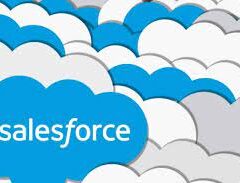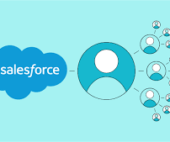Salesforce Experience Cloud, formerly recognized as Salesforce Community Cloud, offers organizations a platform to construct branded online communities for employees, customers, partners, and other stakeholders, fostering collaboration, engagement, and self-service among community members.
Key Features:
Customization: Experience Cloud facilitates customization, empowering organizations to tailor their community’s appearance to match their brand through custom themes, templates, and layouts.
Member Engagement: Various engagement tools like discussion forums, chats, and groups enable members to interact, share information, and collaborate effectively.
Content Management: Easily create, manage, and share content within the community, including articles, documents, videos, and more, organized into topics for streamlined navigation.
Access Control: Administrators can regulate community access and permissions, defining different levels of access for diverse user groups.
Integration: Seamless integration with other Salesforce products and external systems enables connectivity with CRM, marketing automation, and other business applications.
Mobile-Responsiveness: Communities built with Experience Cloud are mobile-responsive, ensuring accessibility from different devices.
Data Visibility: Users can access relevant data from Salesforce CRM, such as customer records and support cases, within the community.
Self-Service: Community members can find answers, access support resources, and resolve issues themselves, reducing the burden on support teams.
Analytics: Experience Cloud offers analytics and reporting tools to track community engagement, member activity, and content performance for informed decision-making.
Developer Tools: Advanced customization and integration requirements are met through developer tools, APIs, and documentation provided by Salesforce Experience Cloud.
Use Cases:
Customer Communities:
- Self-Service Portals: Offer customers a self-service portal for FAQs and support.
- Case Management: Enable customers to submit and track support cases.
Partner Portals:
- Partner Relationship Management (PRM): Create portals for partners to access resources and manage leads.
- Partner Training: Deliver training materials and certification programs.
Employee Communities:
- Intranets: Build internal employee communities for collaboration and HR processes.
- Onboarding Portals: Create portals to assist new hires in onboarding processes.
B2B Commerce:
- E-Commerce Sites: Develop custom e-commerce websites for business customers.
- Social Collaboration: Set up discussion forums and Chatter feeds for member interaction.
Knowledge Sharing:
- Knowledge Bases: Establish extensive knowledge bases for easy access to information.
- Wikis: Create collaborative documentation repositories.
Event Management:
- Event Registration: Allow members to register for events and view schedules.
- Event Calendars: Display event schedules within the community.
Custom Applications:
- Custom App Development: Create applications using Salesforce Lightning components.
- Integration: Integrate external systems for a seamless user experience.
Branding and Theming:
- Custom Branding: Customize community appearance to align with brand identity.
Analytics and Reporting:
- Community Analytics: Gain insights into community engagement and content effectiveness.
Advantages of Salesforce Experience Cloud:
Enhanced Customer Engagement: Build interactive communities for customers to find support and connect with each other. Scalable Collaboration: Create communities for various user groups while maintaining security and access control. Personalization: Deliver personalized content and services to enhance user engagement. Brand Consistency: Customize community appearance to ensure a consistent brand experience. Integration: Seamlessly connect with other Salesforce products and external systems. Mobile-Friendly: Communities are accessible from various devices, improving accessibility. Analytics and Insights: Gain valuable insights into community engagement and user behavior. Automation: Automate processes like customer support workflows to save time and improve efficiency. Security: Protect community data with robust security features. Customer and Partner Enablement: Provide easy access to resources and support for customers and partners. Reduced IT Overhead: Configure and customize communities without extensive coding or IT resources. Community Growth: Scale communities as your organization grows. Comparison with Community Cloud: Experience Cloud offers a broader range of functionalities beyond traditional community building. It focuses on creating seamless digital experiences for customers, partners, and employees. It provides enhanced integration capabilities and AI-driven personalization features. The name change reflects Salesforce’s shift towards delivering comprehensive digital experiences. Examples of What Can Be Achieved: Self-Service Portals: Customer support and FAQs. Partner Portals: Lead management and collaboration. Employee Intranets: Collaboration and HR processes. E-Commerce Storefronts: Product catalogs and shopping carts. Discussion Forums: Community interaction and knowledge sharing. Event and Conference Portals: Event registration and agendas. Patient and Healthcare Portals: Medical records and appointment scheduling. Nonprofit Donor Engagement: Fundraising campaigns and volunteer opportunities. Education Portals: Learning materials and discussion boards. Government Portals: Citizen services and public discussions. Financial Services Client Portals: Account information and communication with advisors.













